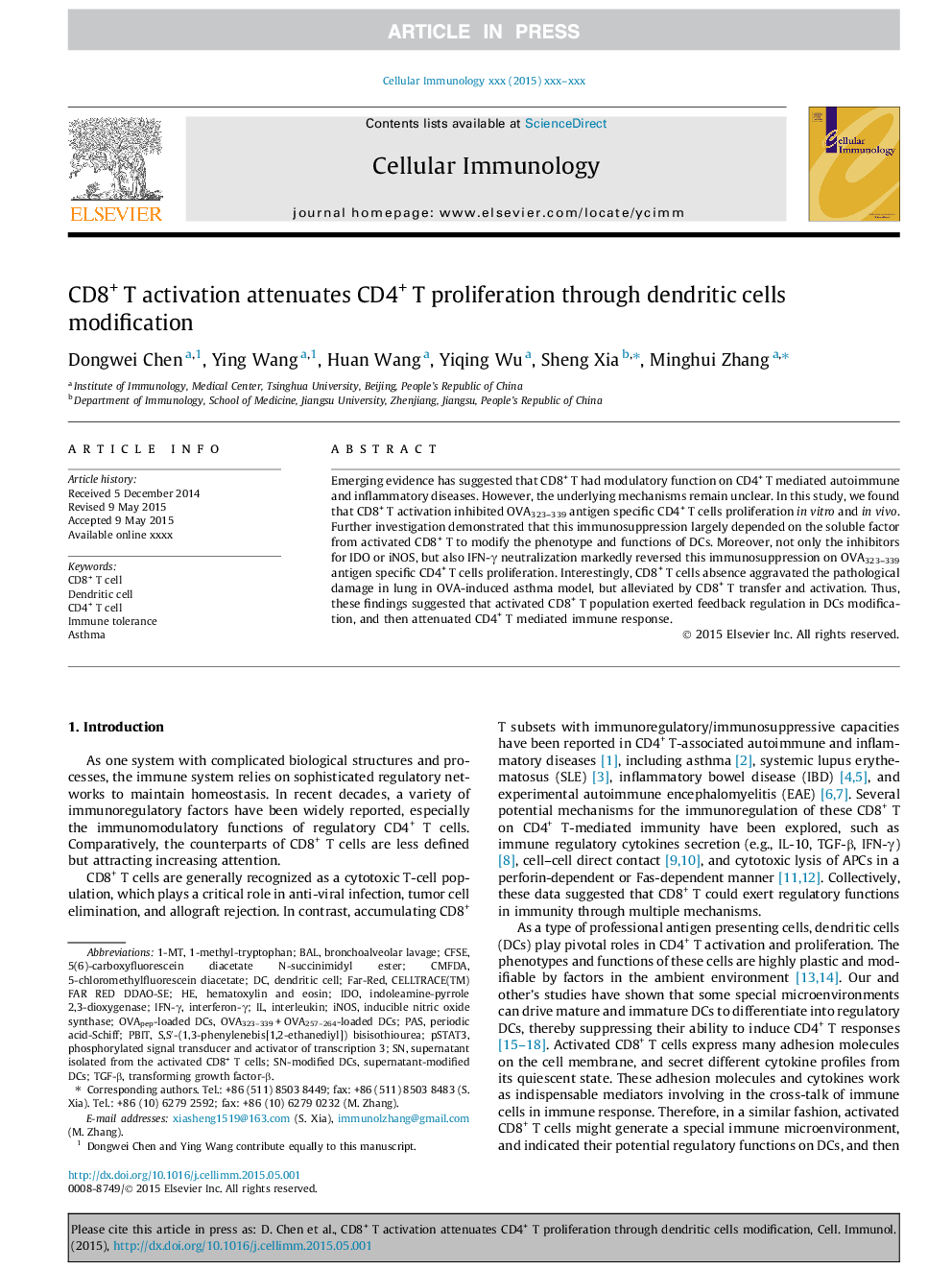| Article ID | Journal | Published Year | Pages | File Type |
|---|---|---|---|---|
| 10926982 | Cellular Immunology | 2015 | 11 Pages |
Abstract
Emerging evidence has suggested that CD8+ T had modulatory function on CD4+ T mediated autoimmune and inflammatory diseases. However, the underlying mechanisms remain unclear. In this study, we found that CD8+ T activation inhibited OVA323-339 antigen specific CD4+ T cells proliferation in vitro and in vivo. Further investigation demonstrated that this immunosuppression largely depended on the soluble factor from activated CD8+ T to modify the phenotype and functions of DCs. Moreover, not only the inhibitors for IDO or iNOS, but also IFN-γ neutralization markedly reversed this immunosuppression on OVA323-339 antigen specific CD4+ T cells proliferation. Interestingly, CD8+ T cells absence aggravated the pathological damage in lung in OVA-induced asthma model, but alleviated by CD8+ T transfer and activation. Thus, these findings suggested that activated CD8+ T population exerted feedback regulation in DCs modification, and then attenuated CD4+ T mediated immune response.
Keywords
pSTAT3PBIT1-mTphosphorylated signal transducer and activator of transcription 3TGF-βindoleamine-pyrrole 2,3-dioxygenase5-chloromethylfluorescein diacetateCMFDACFSEIDOIFN-γBALiNOS1-Methyl-tryptophanCD4+ T cellCD8+ T cellAsthmaperiodic acid-Schiffinterferon-γinterleukintransforming growth factor-βimmune toleranceDendritic cellinducible nitric oxide synthaseFar-redbronchoalveolar lavagePASHematoxylin and Eosin
Related Topics
Life Sciences
Biochemistry, Genetics and Molecular Biology
Cell Biology
Authors
Dongwei Chen, Ying Wang, Huan Wang, Yiqing Wu, Sheng Xia, Minghui Zhang,
